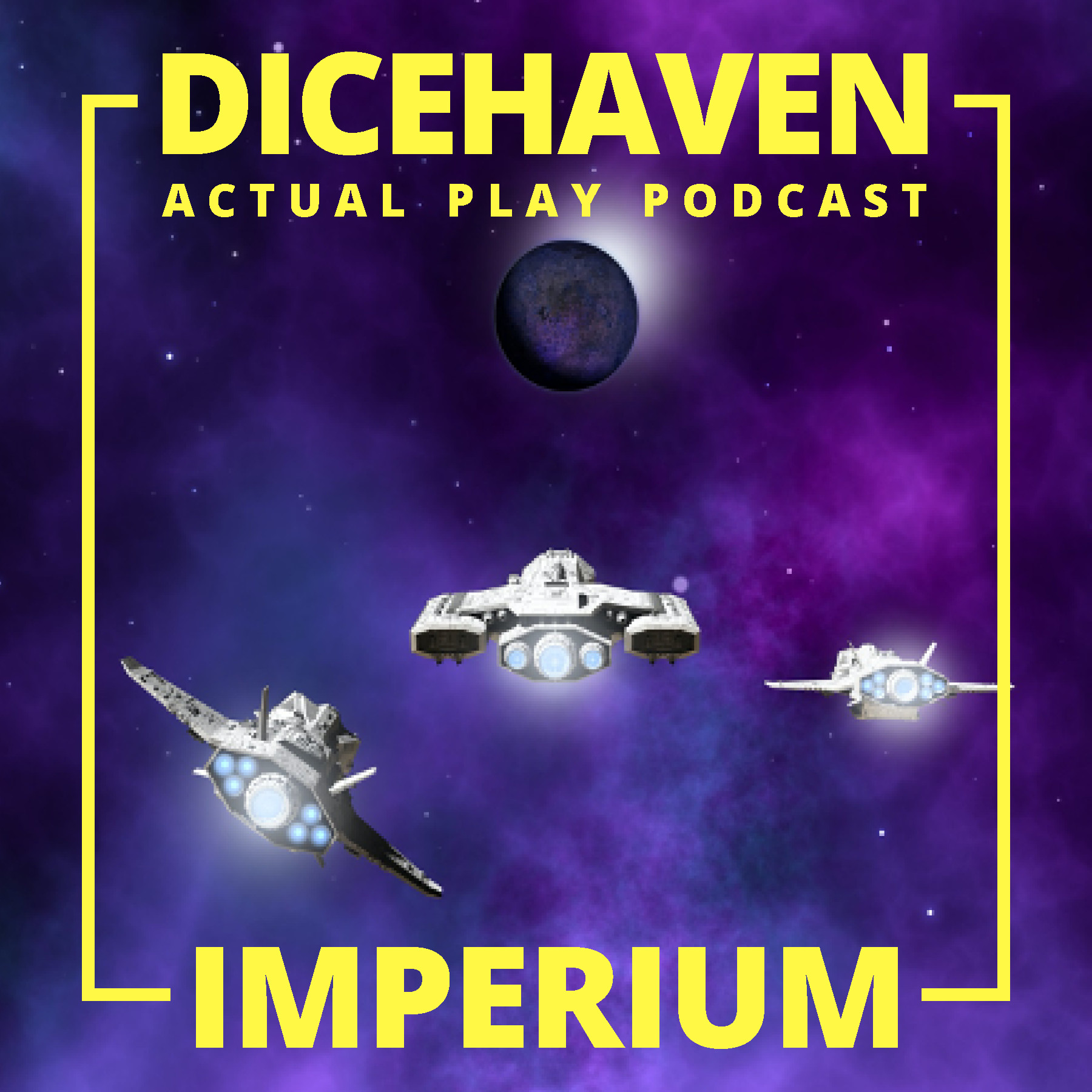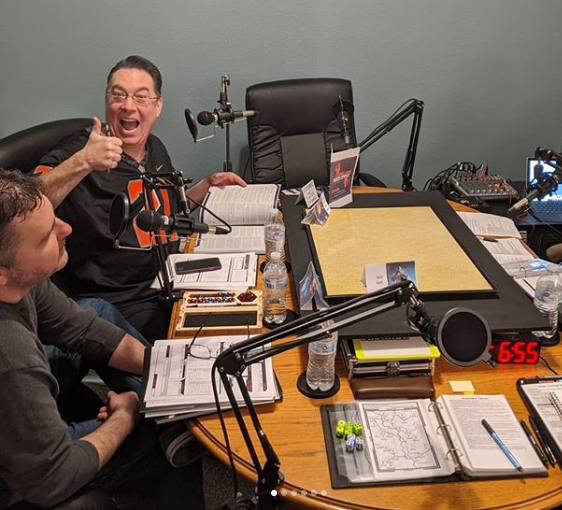A nice interview with book reviewer Tim Frankovich on Christian Fantasy on the INsites blog:
read the article
Category: Interviews (Page 1 of 2)
Interview with authors and industry insiders on the craft of writing.
An insightful interview with Frank Peretti: read article
Q. What were those strands that came together in your mind to start creating your fantasy world?
This is totally the wrong question to ask me. I don’t have any methods to my writing. I am a seat of the pants writer. When my characters go around the bend in a mountain pass and find a three-headed monster, I’m just as surprised as they are.
Q. What role does faith have in your life, and in your writing?
Everything. I don’t ever plan to put a faith message in my writing. It just appears. I think a fly fisherman would use fishing metaphors in his writing; a baseball player would use his game as a stepping stone for expressing his thoughts. Faith in Christ, dependence upon God is just part of who I am and the way I think.
Q. Is there anything you find particularly challenging in your writing?
How do I get distracted?
Let me count the ways.
I am interested in way too many things.
My most serious encumbrance is my own health. I have to pace myself diligently, or I end up too fatigued to think straight.
So I have to be disciplined. This is not my natural bent. So much so that I don’t even want to talk about it.
It’s a good thing God is not a God of disorder, and He’s my God, or I would be a hopeless case.
Q. If you had to do it all over again, would you change anything?
Probably start earlier. I was interested in writing as a teen. I took the Institute of Children’s Literature course as a young mom. But life happened. Until God stopped me short, plucked me out of the working force, and plopped me down at home, I ignored what I really wanted to do.
Writing is a tough business. When an artist finishes a picture, he has something very visible to show for it, even if the painting doesn’t sell. It takes time for a writer to develop his craft. It takes more time to market and finally sell your book. And making a living at being an author is a long shot. These factors combine to make writing a very daunting prospect.
However, I now believe that one should keep dabbling in your dream, even if “the real world” keeps you from pursuing full force your desire to write. Everything you write is part of that learning process, the honing of your skill.
I had a letter writing ministry during the “in between years” and that kept my fingers sufficiently stained with ink.
Yes, I would definitely have been more aggressive and started earlier if I had realized how much pleasure I would get out of exercising the gift God gave me. On the other hand, God brought me into writing just when He deemed my maturity to be at the right stage.
Q. What are your current projects?
I am writing the third in The Dragon Keeper Chronicles. The title so far is DragonKnight. I am also working on a picture book series of tales from Amara (the country of the fantasy series).
Q. Is there anything additional you would like to share with your readers?
The job of a fantasy tale is to clarify good and evil, to help readers touch a noble purpose, and to inspire a desire to seek a better plane.
I like Ursula Le Guin’s quote about fantasy: “Fantasy’s truth challenges, even threatens, all that is false, all that is phony, unnecessary, and trivial in life.”
Donita K. Paul lives in Colorado Springs. Her two children are grown and married. “My son is pursuing his dream of teaching as a college professor of English. That means a lot of grad school. My daughter proofs my work and offers suggestions. Usually on what my heroines should wear! She doesn’t think much of my fashion sense.”
Her dog is a good companion while she writes. “Gimli is named after a dwarf in LORD OF THE RINGS. He’s a Pug/Lhaso Apso mix with weird whiskers and tufts of hair sticking out all over his bug-eyed face.”
Mrs. Paul leads weekly adult fiction writing workshops and occasional groups for teens. “Mentoring is important to me. I want to share what I have learned and pass on the encouragement.”
Check out her website at www.dragonspell.us.
Q. Tell us a little about your latest book.
DragonQuest is the second in the Dragon Keeper Chronicles. Kale continues to discover her weaknesses and strengths. As in our Christian walk, she encounters different people who would have her go on diverging paths. And from where she stands, the choices are not clear cut.
Q. Until recently, fantasy books were seldom seen on the shelves of Christian bookstores. It was notable that recently the Christy awards for Christian novels added a Fantasy category. What has changed? Why the sudden growth in Christian fantasy novels?
Actually, the Christy Awards combined two previous categories and named them Visionary. They combined fantasy/allegory and futuristic/science fiction.
As to why fantasy has suddenly become a hot genre, I’ve heard all sorts of theories. The popularity of the Lord of the Rings movies is a predominant rationale. The amount of science fiction/fantasy in television and movies in general promotes an interest in finding books that follow the same path.
I personally think that things cycle, even reading tastes.
Q. Who are some of your favorite authors of fantasy? How do they inspire you?
Well, I’m expected to say Tolkein and Lewis, right? Thankfully, I can make that claim. I don’t know what would happen to someone who under-appreciated those two authors. Somehow I imagine it might not be pretty.
In the secular world of modern literature, I like some of Salvatore and Weis/Hickman. But my very favorites come from children’s literature of more than 50 years ago – Edgar Eager, E. Nesbit, and L. Frank Baum. These authors enchanted me with their stories of children set in fantastical situations.
Q. Was writing fantasy a childhood dream or something that came on later in your life?
Oh my, no! Growing up, I wanted to be a wife and mother. But part of being a mother is telling stories, teaching through tales. My father was a good oral storyteller and one brother in particular took after him. My mother was a Sunday school teacher and gifted in telling Bible stories. Through various venues, God impressed upon me the power of storytelling.
Q. What first drew you to the fantasy genre?
I have a stupid leg. The other leg seems to get what being a leg is all about, but this one just messes up from time to time. An infection flared up in the stupid leg, and I was sentenced to six weeks with my foot elevated above my heart. My son brought me Robert Jordan’s Wheel of Time series to keep me in the recliner. I hadn’t read much fantasy as an adult. When I finished the series and got out of the chair, I thought, “Well, that was interesting.” (The fantasy and the time spent incarcerated in a chair.)
Eight months later, I had the urge to write something different from the Christian Romance I had been writing. Fantasy was “different.”
Bryan Davis is the author of the “Dragons in Our Midst” series, a contemporary/fantasy blend for young people. Bryan is the author of several other works including “The Image of a Father” (AMG) and “Spit and Polish for Husbands” (AMG), and four books in the Arch Books series. His book “The Story of the Empty Tomb” has sold over 100,000 copies. Bryan lives in Apopka, Florida with his wife, Susie, and their children. Bryan and Susie have homeschooled their four girls and three boys. Although he is now a full time writer, Bryan was a computer professional for over 20 years. Find out more about Bryan at his website, http://dragonsinourmidst.com.
Q. Tell us a little about your latest book.
In Circles of Seven, the third book in the Dragons in our Midst series, the young male hero, Billy Bannister, must journey through the seven circles of the underworld in search of unusual prisoners he has been commissioned to rescue. His female counterpart, Bonnie Silver, goes with him, but she is captured by this land’s evil mistress, the legendary Morgan from the King Arthur legends. Billy has to choose between saving Bonnie and fulfilling his mission. If the mission fails, a great evil will be unleashed on the world, threatening its very existence.
Each of the seven circles represents a spiritual challenge as Billy faces temptations that roughly parallel the seven deadly sins. Readers will follow the two teens through adventures they’ll never forget, and, I hope, they’ll be inspired by the courage, faith, and love of hero and heroine as they battle evil.
Q. Until recently, fantasy books were seldom seen on the shelves of Christian bookstores. It was notable that recently the Christy awards for Christian novels added a Fantasy category. What has changed? Why the sudden growth in Christian fantasy novels?
Christian publishers have known for a long time that fantasy is extremely popular, but they have been unsure how they could produce fantasy novels that would honor Christ first and foremost and how their readers would accept the genre. The Chronicles of Narnia is the classic example of successful, God-honoring fantasy, yet publishers were still skittish about creating new entries for the market.
The Harry Potter series both stalled and ignited the plunge into fantasy. Since these books have been severely criticized in Christian circles, many publishers hesitated to create fantasy works of their own, but the popularity of the series shouted from the rooftops. A few publishers are taking the bold step, answering the call for spiritually based fantasy, and their success is leading others into the genre.
Q. Who are some of your favorite authors of fantasy? How do they inspire you?
My favorite is C.S. Lewis and his Narnia series. He successfully blended a fantasy world with real life, allowing children to journey from their mundane existences into a land of magic and mystery. And along the way, readers learn of the savior of that world, gazing at a picture of the true savior through the pages of a stunning, spiritual portrait. Amazing!
I wanted to paint a similar picture, but not in a different fantasy world. I wanted a story that readers could relate to on an even deeper level, keeping the heroes in our world and bringing the fantasy elements into it so they could see spiritual realities coming to bear on everyday life. That’s what I hope Dragons in our Midst does. I believe it helps readers see that their own lives can be a great spiritual journey without ever leaving home.
Q. Was writing fantasy a childhood dream or something that came on later in your life?
It definitely came later in life. I never appreciated fantasy until I received the inspiration for this series. The problem with most fantasy is the contrived way the heroes often get out of trouble—a new magical power or spell, a sudden rescuer who comes out of nowhere, or some other contrived method. That even happens in Lord of the Rings.
My son finally convinced me to try fantasy with his simple wisdom, “Well, just don’t write it that way.” I try to make sure my heroes succeed through courage, faith, and devices that they already possess and know how to use, yet they are challenged to call upon their resources at a level they never dreamed possible. I believe this is far more satisfying than magical escapes.
Q. What first drew you to the fantasy genre?
I had a dream about a boy who could breathe fire. I told my son about it, and we had a brainstorming session and conjured the premise for the series. Through watching his excited eyes, I realized how powerful the fantasy genre could be. It creates images in young minds that never go away, and if I could infuse spiritual values and virtues into those images, those values would be cemented along with the images.



Recent Comments